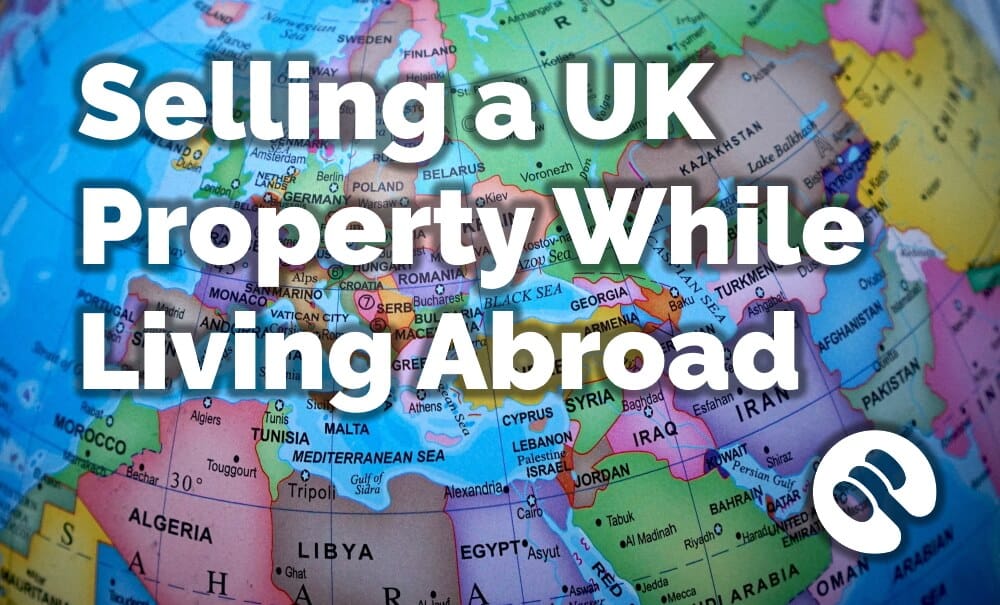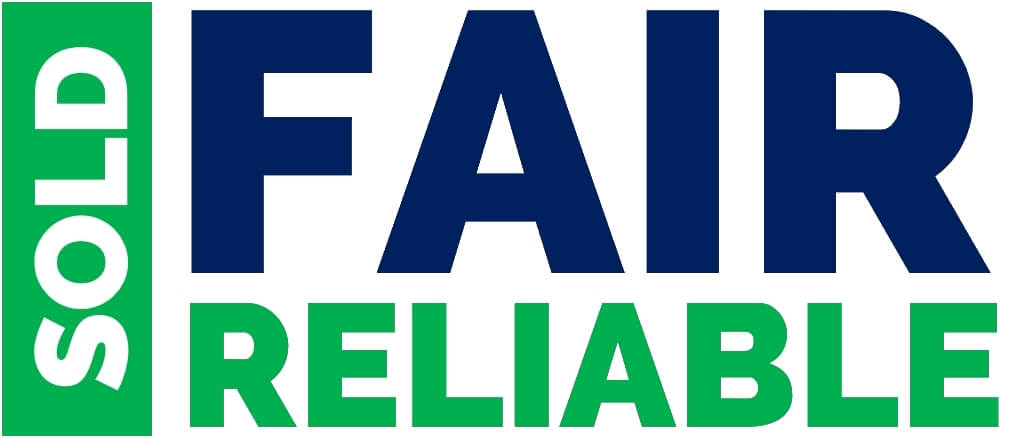Selling a UK Property From Overseas?
- Cost effective
No upfront fee & sell for free options - Quick
Sell your home by auction in 28 days - Secure & reliable
Legally binding sale on auction day - Fair & transparent
Sold to the highest bidder
For your peace of mind we are a member of The Property Ombudsman


Selling by auction is quick and easy. Request a no-obligation auction sale estimate for your house or flat.
- Reliable
- Fast
- Secure
Interested to learn more about the easy and efficient process of selling your property by auction?
Talk to our team on 0800 862 0206
How to sell a UK property while living overseas
Selling a UK property from overseas is legally allowed, but can be a little more complicated than being on the ground in the UK. This article highlights some considerations when selling a UK property from overseas. It covers the main routes to selling and pays special attention to the benefits of selling a property by auction.
Last updated by Mark Grantham on 9th February 2025
Think your property is too nice for auction?
If you thought auction was only suitable for properties in poor condition, you’re in for some news! Practically any type of property can be sold by auction, including properties in good condition. Property auctions in the UK have evolved to cater for the more “average” property seller. Read the guide to selling by auction to find out about the types of auction that are available in the UK.
In this guide:
Considerations
Fraud
Solicitor
Tax
Why auction?
FAQ’s
Contact our team
Considering selling your property at auction?
Give our team a call on 0800 862 0206 – we’ll be happy to chat about whether auction is the right fit for your property and situation.
Prefer to get in touch online? Just click the button below to send us a message.
Enquiring from outside the UK?
If you’re calling from outside the UK, please dial +44 20 7183 2623. Or why not request a free & no-obligation pre-auction appraisal for your property? It only takes a few seconds.

There are many reasons why UK property owners move away for the long-term (or permanently) before they decide to sell their property. Whether you live a two hour drive away, or a twenty hour flight from the property, concerns about maintaining a vacant property or managing tenants when you’re not within physical reach of the property can certainly keep you up at night.
“…it’s the transparency of an auction sale that makes it an ideal choice for UK property owners living some distance away from the property “
Selling a UK property from overseas
How much will your property sell for by auction? Request a free valuation and reserve price estimate for your UK property. In some cases we may need a few more details about your property before providing a free and no-obligation estimate.
Enquiring from outside the UK?
Please dial +44 20 7183 2623 or send us an enquiry.
Alternatively, you can request a free, no-obligation auction sale estimate.
If you’re comfortable with this arrangement, it may not be an issue – until it comes time to sell. When a letting agent is earning substantial profits from your property, facilitating a sale can suddenly become much more complicated.
While this is an extreme example, it highlights an important consideration when selling from overseas: how can you ensure a fully transparent sale with no hidden agendas?
Ensuring the security of your UK property while residing overseas is crucial to prevent fraud, damage, or neglect. Here are some essential steps to safeguard your asset:
- Land Registry Alert – The UK Land Registry offers a free property alert service that notifies you of any attempts to change the ownership details of your property. This is a crucial measure to prevent fraud, particularly if the property is mortgage-free or unoccupied.
- Insurance – Maintaining a comprehensive insurance policy is vital. Some insurers offer specific coverage for properties that are left vacant for extended periods. Check whether your policy covers damage from vandalism, weather conditions, and potential liability claims.
- Keyholder Services – Having a trusted keyholder such as a neighbour, friend, or professional property management company ensures that someone can access the property in case of emergencies. This also allows for periodic inspections to ensure the property remains in good condition.
- Regular Property Inspections – If possible, arrange for periodic inspections through a local estate agent, friend, or property management company. Regular checks help to identify issues such as leaks, pest infestations, or structural damage before they escalate.
- Mail Forwarding and Address Updates – Arrange for mail forwarding services or ensure all important correspondence is sent to a reliable address or email. Unattended post can indicate an unoccupied property, making it a target for burglars.
- Smart Home Security Systems – Investing in smart home technology, such as cameras, motion sensors, and remote alarm systems, allows you to monitor your property from abroad. Many modern systems can send real-time alerts to your phone in case of unauthorised entry.
- Gardening and Maintenance Services – An unkempt property with overgrown gardens or visible disrepair can signal vacancy. Hiring a local service to maintain the garden and exterior can help deter unwanted attention.
- Utility Monitoring – Ensure that essential utilities such as water and electricity are maintained at a basic level to prevent pipes from freezing in winter and other potential maintenance issues.
- Legal Safeguards – Consider placing restrictions on the title deed with the Land Registry. This prevents the property from being sold or mortgaged without a solicitor’s confirmation, adding an additional layer of security.
Taking these proactive steps will help protect your UK property while you are living overseas, giving you peace of mind and reducing the risk of financial or legal complications.
When selling a UK property from overseas, ensuring that utilities and council tax are properly managed can help prevent financial and legal issues during the transfer of your ownership to the new owner. Here are some key considerations:
- Setting Up Online Accounts – Many utility providers and local councils offer online portals where you can manage payments, update details, and monitor usage remotely. Setting up direct debits or scheduled payments can help avoid missed payments and penalties.
- Notifying Local Councils – Inform your local council of the property’s status. If the property is unoccupied, you may be eligible for a council tax discount or exemption depending on the council’s policy. Some councils offer reduced rates for properties that are empty for extended periods.
- Managing Utility Bills – Keeping utility accounts active ensures essential services such as electricity, gas, and water remain functional, preventing issues such as frozen pipes in winter or damp problems due to lack of ventilation. Some utility companies allow you to switch to a minimal usage tariff while the property is unoccupied.
- Tenant Responsibility – If the property is tenanted, ensure that the tenants take responsibility for utility payments and council tax. This should be included in the tenancy agreement. Landlords should periodically check that accounts remain in the tenant’s name to avoid unexpected charges.
- Final Meter Readings – Before finalising the sale, you must provide final meter readings to your utility providers to prevent overcharges. Some companies require a forwarding address to send the final bill.
- Cancelling or Transferring Accounts – Once the sale is complete, you should close any remaining utility accounts or transfer them to the new owner to prevent future liability. Some providers require proof of sale before closing accounts.
By proactively managing utilities and council tax, overseas sellers can ensure a smooth transition and prevent unexpected costs or legal complications.
When selling your UK property while living overseas, it’s worth considering the following points:
- Obtaining an independent/unbiased property valuation.
- Selling tenanted? Keeping your tenant updated.
- Selling vacant? Appointing a local keyholder.
- Exchange rate (timing for a favourable rate).
- What tax do you need to pay?
- Finding legal services in the UK and locally.
- Appointing the best suited auctioneer or estate agent.
Preparation is key to a successful property sale. And an important start is to compare your options before rushing in to accept the first offer you receive. Read on for more information about the benefits of selling by auction.
Selling a property at auction is a simple and efficient process. There are two key advantages that make it an excellent option for UK property owners living overseas:
1) Transparency
Managing a property sale remotely can be challenging, especially when it’s difficult to verify information first hand. Selling through a private treaty (via an estate agent) often adds to the uncertainty. In this method, you negotiate solely with the buyer whose offer you’ve accepted. If their surveyor or builder uncovers issues such as roof damage, damp, or troublesome neighbours, it’s hard to assess the accuracy of these claims without being physically present. Since surveys and final inspections typically occur late in the process (sometimes months after an initial offer) buyers frequently attempt to renegotiate the price at the last minute. This isn’t due to any fault of the estate agent or surveyor; rather, the system in England and Wales is designed to favour buyers, often at the seller’s expense.
An auction sale, however, operates differently. Buyers don’t have the opportunity for last-minute price reductions. The property is sold to the highest bidder, ensuring a transparent process where the seller isn’t pressured into unexpected negotiations or forced to make decisions based on uncertain information. This clarity offers peace of mind and a fairer transaction.
2) Convenience
The speed and certainty of an auction make it an ideal choice for overseas property owners aiming to achieve the best price for their UK property. Auctions put the seller in control— they simply need to set a minimum acceptable price (the reserve price) and assist in preparing the auction legal pack. From there, the auctioneer handles the entire process, and market demand determines the final sale price. There are no prolonged negotiations, failed sales, or last-minute price reductions. The property is sold to the highest bidder, ensuring a straightforward and stress-free experience.
Selling a tenanted property from overseas requires careful planning and consideration to ensure a smooth transition for both the seller and the tenants. You need to determine whether to sell with tenants in situ or have them vacate before the sale. Each option has pros and cons:
- Selling with Tenants in Situ – This approach is often attractive to investors looking for a ready-made rental income. Keeping the tenants means there is no loss of rental income during the sales process. However, some buyers, particularly those looking for a home rather than an investment, may prefer vacant possession.
- Selling with Vacant Possession – If you choose this option, you will need to follow the correct legal procedures for serving notice to tenants. Depending on the lease agreement and tenancy type, this can take several months. Ensuring compliance with the legal notice periods under the UK’s Section 21 or Section 8 regulations is crucial.
Key considerations when selling a tenanted property include:
- Tenant Cooperation – Keeping tenants informed throughout the process helps to facilitate viewings and avoid potential disputes. Some tenants may be resistant to moving, which could complicate the sale.
- Viewings and Access – Arrange viewings with minimal disruption to the tenants. Providing advance notice and working around their schedules will ensure a smoother process.
- Letting Agent Conflicts of Interest – If you currently use a letting agent, they may not always act in the best interest of your sale. Since they earn ongoing management fees from tenancies, they may have little incentive to support a sale that disrupts their revenue. In such cases, it might be better to engage an independent estate agent.
- Legal and Contractual Considerations – Ensure the tenancy agreement allows for the sale of the property. A specialist solicitor can help manage the legal aspects of transferring the tenancy agreement to the buyer if the tenants remain in situ.
- Tax Implications – Selling a tenanted property from overseas may have tax implications, including Capital Gains Tax (CGT). It is important to calculate potential tax liabilities and report them to HMRC within the required timeframe.
- Ensuring Compliance with Landlord Regulations – If you are selling to another landlord, they will want to ensure that all required safety certificates (e.g. gas safety, electrical safety, EPC) are up to date. Ensuring compliance can make the sale smoother.
- Tenant Rights and Protections – In some cases, tenants may have a ‘right of first refusal’ to purchase the property, particularly in multi-tenant buildings. This is worth checking before proceeding with a sale.
By carefully considering these factors, overseas sellers can ensure a successful sale while maintaining good relationships with their tenants and complying with UK landlord regulations.

Selling a UK property without returning to the country is entirely possible with the right planning and professional support. Many expats and overseas investors successfully complete property sales remotely, leveraging online services and legal representatives. Here are the key steps and considerations:
- Using an Online Conveyancer – Remote conveyancing services allow sellers to handle legal processes without being physically present. Many UK-based solicitors and conveyancers specialise in assisting overseas clients, offering digital communication and document processing.
- Appointing a Power of Attorney – If required, sellers can appoint a trusted representative, such as a solicitor or a family member, to sign documents and complete necessary formalities on their behalf. This is especially useful if notarised paperwork needs to be signed locally.
- Completing Identity Verification through a Local Notary – UK property law requires sellers to verify their identity. If you are overseas, this process can be completed through a local notary or a UK solicitor authorised to conduct international verifications. Some firms also offer video verification services to streamline the process.
- Managing the Sale Remotely – Technology makes it possible to manage the sale remotely through virtual property viewings, online contract exchanges, and digital signatures. Ensure that your chosen estate agent provides high-quality video tours for potential buyers.
- Handling Tax and Legal Obligations – Selling from abroad comes with tax implications, including Capital Gains Tax (CGT). Overseas sellers must submit a CGT return to HMRC within 60 days of completion, even if no tax is owed. Consulting a tax specialist ensures compliance and minimises tax liabilities.
- Arranging for Property Clearance and Key Handover – If the property is vacant or requires preparation for sale, hiring a local property management company to oversee clearance, cleaning, and handover of keys to the buyer or estate agent can simplify the process.
- Ensuring Secure Payment Processing – Sellers should confirm with their solicitor that funds from the sale will be transferred securely to their designated bank account. It is advisable to use a UK-based account to prevent international transaction delays or exchange rate losses.
By carefully organising each aspect of the transaction, sellers can ensure a smooth and efficient sale without needing to return to the UK. Engaging the right professionals and using digital solutions will help to facilitate a hassle-free property sale from abroad.
If you live overseas and are selling a property in the UK, you will need to appoint the services of a UK based solicitor to help with the sale of your property. A good starting point for finding a suitable solicitor is the Law Society website. The UK based solicitor will need to verify your identification documents, but this can usually be done by a solicitor/ notary in your local country, so that saves having to post originals of you ID documents by overseas courier.
1. Capital Gains Tax (CGT) Forms
- UK property owners living abroad must complete a Capital Gains Tax return within 60 days of selling their property
- This is done through the “UK Property Account” on the HMRC website
- They’ll need their Government Gateway ID to access this
2. Proof of Identity and Address
- Valid passport or national ID card
- Proof of current overseas address (utility bills, bank statements less than 3 months old)
- The seller’s solicitor will need these for anti-money laundering checks
3. Property Documentation
- Original property deeds or official copies from Land Registry
- Energy Performance Certificate (EPC) valid for 10 years
- FENSA certificates for any replacement windows/doors
- Building regulations certificates for any major works
- Gas and electrical safety certificates
- Any planning permission documentation
4. Tax-related Information
- Non-Resident Landlord Scheme (NRLS) documentation if the property was rented
- UK Self Assessment tax returns if filed in recent years
- Overseas tax residency documentation
5. Power of Attorney
- If the seller won’t be present in the UK during the sale process, they may need to set up a Power of Attorney
6. Bank Account Details
- UK bank account details for receiving proceeds (or specific arrangements for international transfers)
- Proof of bank account ownership

You may be liable to payment of Capital Gains Tax when selling a property that is not your own home, that’s regardless of whether the property is has been tenanted or not.
Capital Gains Tax is based on the difference between the amount you paid for your property and the amount you got when you sold it. There may be an exemption, or partial exemption if you previously lived in the property as your own home.
You might find it helpful to have a look at HMRC’s Help sheet HS307: Non-Resident Capital Gains for land and property in the UK.
If you sell a UK property while you are living outside the UK, you may have to pay a foreign tax on any gain that has arisen. Each country has its own rules on capital gains tax and it is advisable to to take advice locally.
You may be able to claim double tax relief, if you are liable to tax on the disposal of the asset in another country as well as the UK.
Australia is the most popular destination in the world for UK expats. According to the Australian Governments’ Department for Home Affairs, at the end of June 2019, almost 1.2 million people who were born in the United Kingdom were living in Australia. This makes UK expats’ the largest migrant community in Australia, equivalent to 15.7 per cent of Australia’s overseas-born population and 4.7 per cent of Australia’s total population.
One of the difficulties of selling a property on the other side of the world, is the time difference. Living in a different time zone can add delays to the negotiation and conveyancing process, when selling with an estate agent.
Most of the Australian expats that we talk to are familiar with the benefits of selling at auction, because it’s the primary method of selling properties in Australia! And they’re interested to learn that auction has become more popular in the UK in recent years. The traditional “in-the-room” auctions still cater for run-down and dilapidated properties, but there are modern-style auctions that cater for all property types.
Can I sell my UK property whilst living abroad?
Yes, you can sell your UK property while living abroad. You’ll need to appoint a UK-based solicitor to handle the legal aspects and either instruct an estate agent directly or grant power of attorney to someone in the UK to manage the sale on your behalf.
Do I need to pay UK Capital Gains Tax if I sell my house whilst living overseas?
Yes, non-UK residents must pay Non-Resident Capital Gains Tax (NRCGT) on UK property sales. You must report and pay any NRCGT within 60 days of completing the sale, even if you’re registered for Self Assessment.
How do I choose an estate agent or auctioneer when I’m not in the UK?
Research local estate agents and auctioneers online, read reviews, and conduct video calls to interview potential agents. Look for agents with experience in dealing with overseas sellers. Consider choosing a larger agency with a dedicated team for international clients.
What documents do I need to sell my UK house from abroad?
You’ll need your property title deeds, ID (passport/driving licence), proof of address, Energy Performance Certificate (EPC), relevant building regulations certificates, and a valid Power of Attorney if someone is acting on your behalf.
How can I sign legal documents if I’m overseas?
Documents can be signed electronically using approved platforms, or physical documents can be couriered internationally. Some documents may need to be witnessed by a notary public in your country of residence and authenticated with an apostille stamp.
Should I grant Power of Attorney to someone in the UK?
Granting Power of Attorney to a trusted person in the UK can significantly simplify the sale process. They can sign documents on your behalf and make decisions when time differences might otherwise cause delays.
How can I handle viewings and property maintenance from abroad?
Your estate agent or auctioneer can handle viewings, and you can appoint a property management company or trusted friend/family member to manage maintenance. Consider installing smart security systems for remote monitoring and arranging a deep clean before viewings begin.
What’s the best way to receive the proceeds from my UK house sale?
Use a specialist currency exchange service rather than a standard bank transfer to receive funds in your local currency. This typically offers better exchange rates and lower fees than traditional banks. Discuss options with your solicitor and financial advisor.
How long does it take to sell a house when living overseas?
The process typically takes 3-6 months, similar to a standard UK sale. However, time differences, document authentication requirements, and international postage can add delays. Good preparation and granting Power of Attorney can help minimise these delays.
Do I need to return to the UK at any point during the sale process?
No, it’s not necessary to return to the UK if you have proper legal representation and Power of Attorney arrangements in place. The entire process can be managed remotely through your solicitor, estate agent, and appointed representatives.
Useful resources
Find a UK based solicitor using the Law Society website.
The Non-resident Landlords Scheme (NRLS) taxes the UK rental income of people whose ‘usual place of abode’ is outside the UK.
Next steps…
Enquiring from outside the UK?
Please dial +44 20 7183 2623 or send us an enquiry.
Alternatively, you can request a free, no-obligation auction sale estimate.
Why auction?
Why is auction well suited to selling a UK property when the owner lives overseas? Auction provides a prompt and reliable way to sell for a fair price. The auction process not only reduces the influence and control from the buyer, but also from the estate agent.







